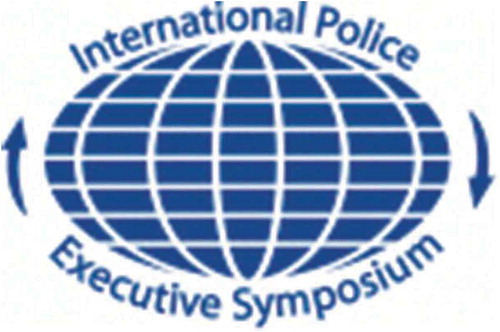FootnoteThis year the 30th meeting of the IPES, International Police Executive Symposium, www.ipes.info has coincided with the Volume 20 of PPR, Police Practice and Research: An International Journal, which is affiliated with the former. The gap in the years of origin has occurred because the journal was introduced after the IPES, which brought police leaders from all over the world, to discuss contemporary policing issues of universal significance. PPR was conceived later as an intellectual forum to pursue and nourish the ideas discussed in the meetings.
Here the underlying impetus came from my own personal experience of disillusion from having to practice a heuristic policing ideology as a young high-ranking police leader in India where colonial policing was still in vogue in the Sixties (after twenty years as an independent democratic republic).
In order to follow the quest for understanding Varieties of Police Behavior (Wilson, Citation1968), and Patterns of Policing (Bayley, Citation1965), in the seventies, I came to study policing in Michigan State University, the Mecca of Policing. It is the same quest that for enhancing what police can do led to creation of IPES in the Nineties. However, in the 30th Meeting of IPES in Belgrade early this month, I was saying on the final day with some amount of despair that the more policing has changed, the more it has stayed the same (Speech at the 30th IPES Meeting, Belgrade, June 30– July 5, 2019). Newspapers are still replete with stories of police corruption, brutality, racial bigotry, sexual discrimination and all the rest of it.
What is the remedy? It certainly cannot be achieved if police leaders and followers measure their lives in coffee spoons and talk inanely of Michelangelo (Eliot, Citation1917). In IPES our experience tells us to keep doing what we have been doing during the last quarter century: To strive hard to reach the Eldorado of ‘police leaders as thinkers’ (Goldstein, Citation1977).
I offer my heartiest thanks to fifty-five enthusiastic men and women who came from twenty-three countries, all continents; police leaders, and researchers, and their spouses who participated in presentations, discussions, and debates for five days from morning until evening. After day-long hard intellectual work, they enjoyed the exotic Serbian meals, varieties of cultural exposures and, global camaraderie in five-star restaurants and in country-side Salas where they enjoyed open-air dining in rustic settings. It was indeed a quest for comparative international policing, interspersed with cultural curiosity and inspired by a spirit of adventure in a different land.
I heartily thank the IPES Directors, PPR Editors, Institutional Supporters, and those who helped IPES Belgrade 2019 in measures, big and small, including Miross Travel Agency, ably represented by Danilo, Milos, Katarina and Nicola that admirably organized the IPES 20I9. Professor Dr. Rick Sarre, Dean, Law School, University of South Australia, Adelaide and an IPES Veteran, masterfully organized the academic program with splendid verve. Our native born Director of Cultural Affairs, Dr, Snezana Mijovic-Das MD; Dragana Spasic, University Assistant, and her Mentor, Professor Branislav Simonovic, both of the University of Kragujevac; and Local Supporters, Advocate Bozo Prelevic and Serbian Minster of Health, Dr. Slavica Dzukic: Advocate Svetlana Vasic, Manager Mirela Water Company, Alexander Dejanovic. Musician Andre Oneil of Belgrade Philharmonic Orchestra deserve most grateful thanks. Several brilliant Serbian speakers, including Dr. Ugliesa Zvekic of the United Nations and, Dr. Vladimir Bozovic of the Serbian Ministry of the Interior contributed handsomely to the quality of the meeting.
Last but not the least the workers in the restaurants and the hotels in and around Belgrade including the Salis 137 in Novisad and perambulatory musicians of Skadarlija, and enthusiastic tour guides made us feel that July was not the ‘cruelest month’.
Finally, I most heartily thank the participants, the sessions chairs and the discussants who enthusiastically came to Belgrade from all over the world and made the 30th Meeting a very fruitful and productive endeavor
1. Edited at the office of the International Police Executive Symposium, IPES, WWW.IPES.INFO

Disclosure statement
No potential conflict of interest was reported by the author.
Notes
This article was originally published with errors, which have now been corrected in the online version. Please see Correction (https://doi.org/10.1080/15614263.2019.1673551)
References
- Bayley, D. H. (1965). Patterns of Policing. New Brunswick, NJ: Rutgers University Press.
- Eliot, T. S. (1917). The love song of J. Alfred Prufrock. London, Oakley House.
- Goldstein, H. (1977). Policing a free society. In Policing a free society. Cambridge, MA: Ballinger Pub. Co.
- Wilson, J. Q. (1968). Varieties of police behavior: the management of law and order in eight communities. Cambridge, MA: Harvard University Press.
